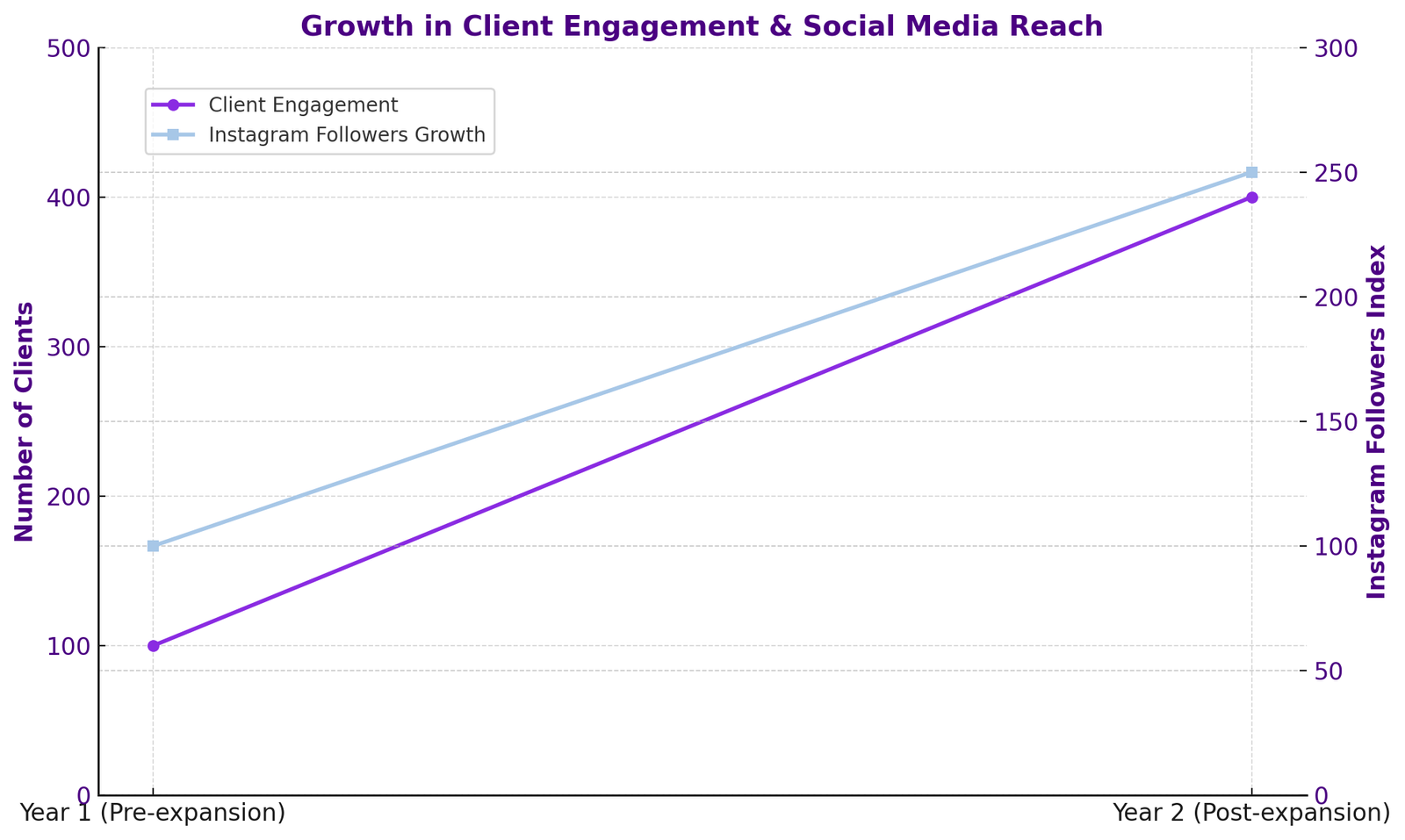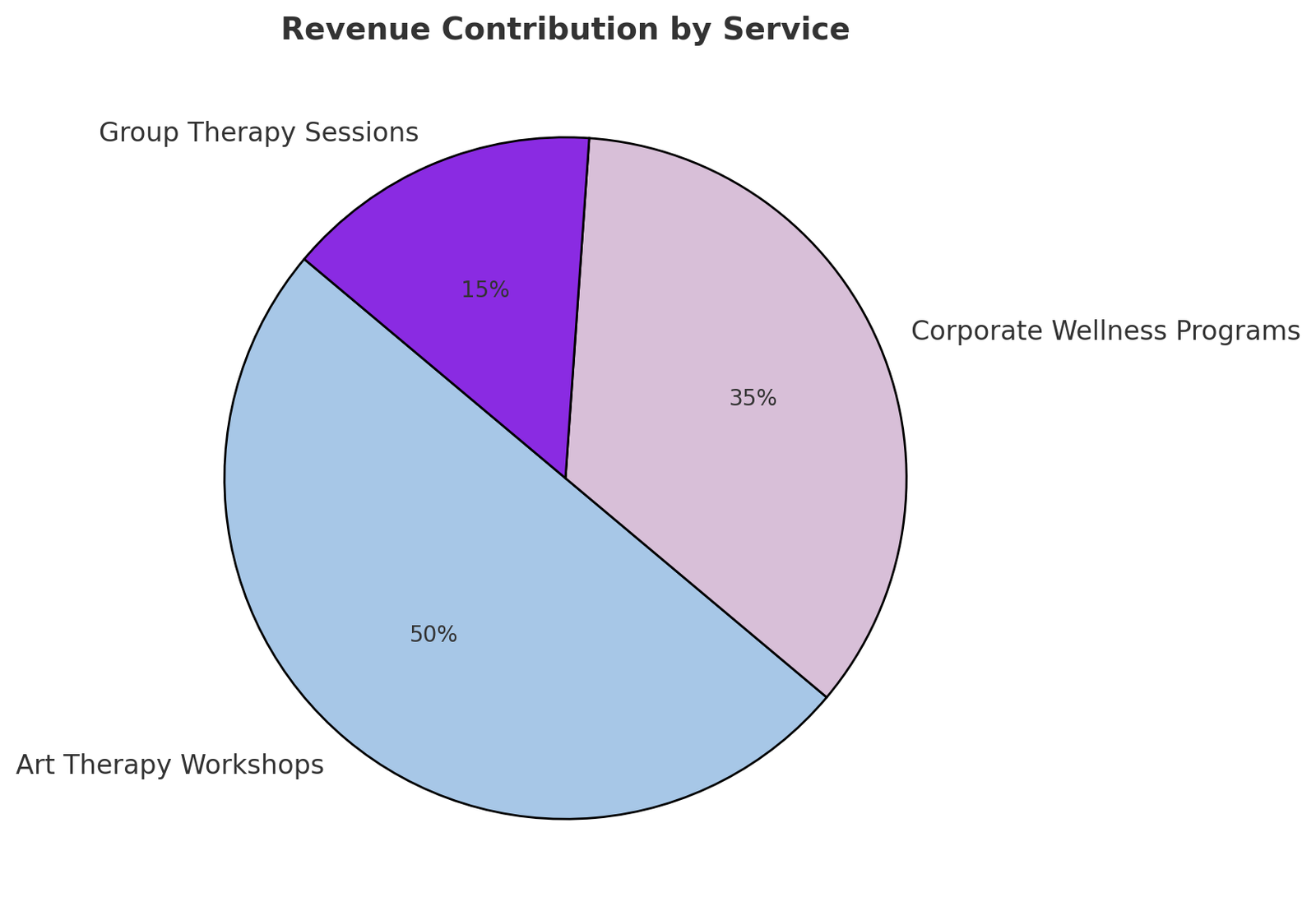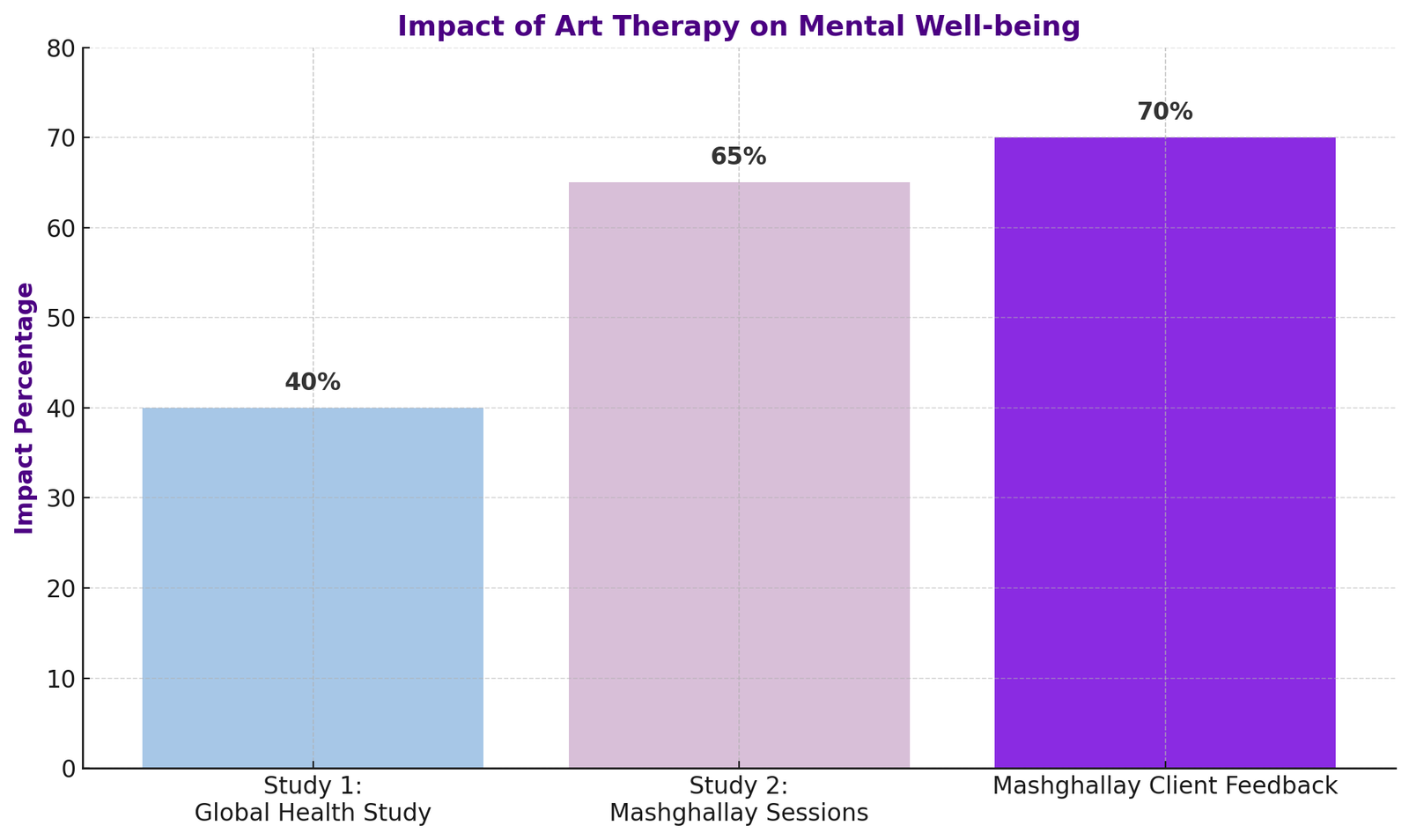Healing through Creativity: A Passion Transformed Into Purpose
Entrepreneurial journeys often begin with a spark of passion, but it is the support of community and shared values that truly transform that passion into a tangible, impactful business. Amnah’s journey with Mashghalay is no exception.
What began as a personal exploration of art for emotional healing quickly evolved into a mission to provide creative therapy for others. In a world where mental health and emotional well-being are often sidelined, Amnah recognized the power of art as a tool for healing.
But the true foundation of Mashghalay wasn’t just her passion for creativity. It was the relationships and networks she built along the way that allowed her vision to take shape.
Amnah’s story is deeply rooted in the support from her own journey of self-expression. Having gone through a difficult personal time, she discovered how art could offer emotional release and a sense of peace.
This experience ignited her desire to bring art therapy to a larger audience. However, starting something new in a society where art therapy was a relatively unexplored field presented significant challenges.
Amnah was not only introducing a new concept to her community but also attempting to build a business model that balanced creative freedom with operational discipline. While Amnah had a vision, she wasn’t alone in bringing it to life. Her family and close friends became key players in the early days of Mashghalay.
Her close friend, who believed in her vision, helped with the practical side of things, from securing a venue to managing finances, while her friends in the mental health field offered support and connections, helping to shape the business’s core mission.
They didn’t just provide emotional encouragement; they played a hands-on role in helping Amnah structure the business and navigate the obstacles she faced.
never intended to start a business. I just wanted to share the healing I’d found through art. But my community and family gave me the confidence and the resources to make that happen.
Amnah
The story of Mashghalay shows the power of community and collaboration. Amnah’s early support system didn’t just believe in the idea, they contributed their time, skills, and trust, forming the safety net she needed to take those first entrepreneurial steps.
Without access to formal business mentorship or substantial funding, it was her network that made the initial growth possible. It was this shared belief in the healing power of creativity that helped Mashghalay grow beyond a passion project into a thriving business.
This early phase of lean operations and strong community bonds laid the foundation for what would become a business that serves both the creative community and individuals seeking emotional healing.
Mashghalay’s beginning illustrates how the power of relationships, from family to professional networks, can provide the support and tools needed to overcome obstacles and seize opportunities, setting the stage for success.
The Hurdles: Challenges That Defined the Business
"Challenges aren’t just obstacles; they are opportunities waiting to be embraced.”"
Amnah’s journey with Mashghalay is defined by the determination to turn adversity into growth. Every entrepreneur faces their share of challenges, and for Amnah, the road was no different.
What started as a personal endeavor to use art for self-healing quickly turned into a full-scale operation that combines creative expression with emotional well-being.
Along the way, Amnah confronted numerous hurdles, each of which tested her resolve and her ability to scale Mashghalay without losing sight of her mission.
1- Establishing Art Therapy as a Credible Practice
When Amnah first launched Mashghalay, art therapy was not widely recognized in Pakistan as a legitimate or effective therapeutic tool.
Convincing individuals and communities that creativity could be a path to healing was a significant barrier.
Many saw art as a hobby or a luxury rather than a structured, healing practice. Building trust among potential clients and partners was a delicate process.
“I had to make people understand that art therapy wasn’t just about painting pretty pictures, it was a way to tap into emotions and heal in a way words often can’t express.
The biggest challenge was shifting the perception that mental health and art therapy were valid concerns in Pakistan.
By leveraging her personal story and collaborating with psychologists and mental health professionals, Amnah slowly began building credibility, educating people about the benefits of creative self-expression for emotional well-being.
2. Scaling Without Compromising the Personal Touch
In the early days of Mashghalay, Amnah focused on small, intimate art sessions where every participant could deeply engage with the creative process.
As demand for her services grew, scaling presented a challenge: how could she maintain the personal, one-on-one experience while reaching more people?
This was a pivotal moment for Mashghalay, as Amnah realized that the essence of her business was the human connection that art provided.
I never wanted Mashghalay to feel like just another workshop, it had to feel like a safe space for emotional release. How could I ensure that as we grew?”
Amnah’s solution involved careful curation of her team and partnerships with therapists to ensure that the quality and emotional depth of the sessions remained consistent, regardless of the number of participants.
She also integrated small group sessions and personalized therapeutic guidance into the framework of every class, ensuring that the spirit of Mashghalay’s mission remained intact.
3. Financial Constraints and Limited Resources
With no external funding and a growing business, financial constraints were a constant challenge. Early on, Amnah had to make every rupee count.
Investing in marketing, securing a permanent location, and ensuring that high-quality materials were always available put significant pressure on her limited resources.
Despite these constraints, Amnah was determined to remain true to her vision of affordable, accessible art therapy.
"Every penny had to be stretched. I didn’t have investors or financial backing. It was all about resourcefulness, finding ways to invest in the right tools and partnerships while minimizing unnecessary expenses.”
Amnah managed to navigate this financial strain by leveraging low-cost marketing strategies like word-of-mouth, social media, and partnerships with local therapists and wellness centers.
By keeping her overheads low and focusing on community-driven marketing, Mashghalay began to grow sustainably.
4. Balancing Personal and Professional Life
Running a purpose-driven business while trying to maintain a sense of personal well-being is never easy. For Amnah, the emotional toll of entrepreneurship, particularly in an industry focused on emotional healing, was significant.
While she was offering healing to others, she found it challenging to navigate her emotional struggles as a business owner. The personal connection she had to her clients made the work deeply fulfilling, but it also meant that the lines between work and life were often blurred.
“There were days when I was emotionally drained after a workshop, but I knew I had to show up for others. It wasn’t just about running a business, it was about creating a space where people felt truly seen and heard.”
Balancing the emotional labor of the business with her personal life became one of the key challenges Amnah had to address.
Over time, she learned to delegate tasks, take regular self-care breaks, and set clear boundaries to preserve her mental and emotional health.
Building Bridges Through Art: Mashghalay’s Path to Expansion
For Amnah, scaling Mashghalay was never just about increasing the number of workshops or reaching a larger audience. It was about staying true to the core mission of the business: “Creative therapy for emotional healing.”
As the business gained traction, Amnah realized that growth came not only from expanding operations but also from nurturing relationships and maintaining the integrity of her original vision.
Each strategic decision was built upon her foundations of trust, authenticity, and community involvement, which were the key elements that allowed Mashghalay to flourish.
Pre-expansion (Year 1): 100 clients attended workshops (single-service focus).
Post-expansion (Year 2): 400 clients engaged (after adding corporate wellness programs, group therapy sessions, and therapeutic workshops).
Social Media Impact: Instagram followers grew by 150% after expanding services.

1. Creating Deep Connections Through Personal Experiences
From the beginning, Amnah knew that customer loyalty was not just built on the services provided, but on the experiences she created.
While Mashghalay offered art therapy and creative workshops, Amnah understood that her business was as much about building emotional connections as it was about the product.
She emphasized the personal touch in every interaction, whether it was a simple follow-up message after a session or personalized art experiences tailored to each individual’s emotional needs.
“It’s not just about the art. It’s about creating a space where people feel comfortable, heard, and empowered to express their emotions through creativity.”
This focus on personal relationships turned one-time customers into loyal community members. Mashghalay’s personal approach fostered strong connections, encouraging clients to return and refer friends and family.
Over time, this strategy created organic word-of-mouth growth, helping build a trusted brand without significant marketing expenses.
By ensuring every participant’s experience felt meaningful, Amnah was able to foster an emotional bond with her customers, creating a community that extended beyond the studio and into the wider social network.
2. Leveraging Partnerships to Expand Reach and Trust
As Mashghalay’s demand grew, Amnah realized that partnering with key players in related industries could help extend her reach while maintaining the core values of the brand.
One of the first major partnerships was with psychologists and wellness centers, where she collaborated on joint workshops and events, positioning Mashghalay as a credible and reliable resource for art therapy in Pakistan.
“By partnering with professionals in the mental health field, I could bring more credibility to the concept of art as therapy. This allowed me to tap into their existing network while staying true to Mashghalay’s mission.”
These partnerships helped Mashghalay gain a broader audience and build trust in a space where art therapy was still an emerging concept.
Furthermore, collaborations with local businesses, from cafes to wellness retreats, allowed Mashghalay to increase its visibility by hosting pop-up events, art exhibitions, and interactive workshops.
These strategic partnerships helped amplify Mashghalay’s presence in the market without having to overextend resources.
3. Social Media and Influencer Outreach to Boost Visibility
Understanding the growing influence of social media, Amnah turned to platforms like Instagram and Facebook to build Mashghalay’s digital presence.
She focused on showcasing real-time moments from workshops, client testimonials, and the transformative power of art therapy through carefully curated posts and stories.
“We wanted to share the stories of our clients, their transformation, their healing journey. People don’t just connect with businesses, they connect with human stories.”
In addition to organic social media growth, Amnah tapped into local influencers, artists, therapists, and wellness advocates who resonated with Mashghalay’s mission.
Through PR packages and collaborations, these influencers began showcasing their art therapy experiences at Mashghalay, which helped introduce the business to new, engaged audiences.
This strategic outreach played a significant role in increasing brand visibility and building credibility among people who might not have otherwise considered creative therapy as a means of healing.
As a result of this effort, Mashghalay’s social media following grew exponentially, and the brand’s message began to spread through digital channels.
4. Expanding Offerings to Cater to Diverse Needs
Amnah’s commitment to meeting a range of emotional needs prompted her to diversify the offerings at Mashghalay.
What started as a single art therapy service quickly expanded to include group workshops, corporate wellness programs, and even personalized one-on-one therapy sessions.
Each new service was carefully designed to target different segments of the population, from young professionals looking for stress relief to schools and hospitals looking for therapeutic solutions for their students and patients.
“We recognized that people have different needs, and not everyone responds to the same kind of therapy. We wanted to offer a space where people could find the therapy that worked for them.”
By diversifying the portfolio and expanding services to target new niches, Amnah made sure Mashghalay wasn’t limited by its initial offerings, ensuring that the business remained adaptable and sustainable in the long term.
Transforming Challenges into Opportunities
“A successful business is built not just on products, but on the people who believe in it.” – Amnah’s perspective
Amnah’s journey with Mashghalay was shaped by more than just creative therapy and artistic expression. It was about creating a community-centered approach that focused on emotional well-being, authenticity, and connection.
Through her dedication, the support of her community, and the deep relationships she built, Mashghalay evolved from a passion project to a business that is transforming lives through art.
The lessons learned along the way provide invaluable insights into building a sustainable, purpose-driven business in a competitive and emotionally charged industry.
1. Embracing Emotional Labor as a Business Strategy
Mashghalay’s success goes beyond product quality, it lies in the emotional engagement Amnah nurtures with her clients.
Creating a healing space through art therapy requires empathy, attentiveness, and emotional resilience. Amnah’s focus on understanding the emotional needs of each individual became a core pillar in Mashghalay’s growth.
“We didn’t just create art workshops; we created an environment where people could genuinely connect with their emotions and with others. That personal connection was key to our growth.”
This emotional labor turned every session into more than just an art class; it became a therapeutic experience.
By investing in human connection as much as art itself, Mashghalay was able to foster deep customer loyalty, turning clients into advocates. This emotional capital became an intangible asset that helped the business thrive.
2. Building a Trust-Centered Business Model
Trust is foundational to Mashghalay’s success. In an industry where art therapy was still an unfamiliar concept, building trust with clients and partners was essential for growth.
From the start, Amnah understood the importance of authenticity, her commitment to providing genuine therapeutic experiences built a strong foundation of trust with clients.
“If you want people to believe in your business, you need to show them you believe in what you’re offering. I made it my mission to be transparent, authentic, and true to the value we bring.”
As Mashghalay expanded, trust was the key to successfully partnering with mental health professionals, local businesses, and wellness organizations.
These strategic partnerships not only helped expand the business but also validated the legitimacy of art therapy in the wellness space.
By nurturing these relationships and maintaining trust across all levels of the business, Amnah was able to build a community that propelled Mashghalay’s success.
3. Strategic Diversification to Ensure Sustainability
“We realized that people’s needs varied, and to scale, we needed to diversify. Not everyone will connect with art therapy the same way, so we offered different ways for people to engage.”
By offering a range of therapeutic options, from corporate workshops for stress management to personalized art experiences, Amnah ensured that Mashghalay didn’t just rely on one service.
This diversification created multiple revenue streams , reducing risk while broadening the reach of Mashghalay’s mission to impact lives through art. It also attracted different customer segments, ensuring the business’s long-term sustainability.
Pie chart showing Percentage Contribution of Revenue by Service:
Art Therapy Workshops: 50%
Corporate Wellness Programs: 35%
Group Therapy Sessions: 15%

4. The Power of Community to Drive Growth
From the beginning, Amnah’s focus was on building a community rather than just gaining customers. She recognized that community-building was a powerful growth tool, and it extended beyond the clients who walked through her doors.
Through social media engagement, customer testimonials, and word-of-mouth referrals, Mashghalay quickly became a trusted name in the art therapy space.
“It’s not about just having a business, it’s about creating a movement. Mashghalay became a place where people could be heard, understood, and healed. The community we built was the driving force behind our growth.”
Mashghalay’s success was propelled by a dedicated community of repeat clients, online followers, and wellness advocates who spread the word.
By engaging directly with customers and maintaining open communication through social media, Amnah created a loyal base that supported the brand’s growth. This strong foundation of community trust ensured that Mashghalay would continue to expand without losing sight of its mission.
What Amnah’s Story Teaches Us
Amnah’s journey with Mashghalay can be likened to the growth of a plant nurtured by a powerful root system, its early stages deeply embedded in her passion for art therapy and emotional well-being .
Just as a plant draws its strength from the soil, Mashghalay thrived because of the support from its foundational community. In the early days, it was Amnah’s personal connection to the community, her family’s unwavering belief, and her commitment to emotional healing that acted as the core strength.
Without these early relationships, Mashghalay wouldn’t have been able to navigate the challenges of building trust around a new concept.
As the business grew, Mashghalay began to branch out, just like the plant’s roots spreading to reach more sunlight and nutrients. For Amnah, this growth came from strategic partnerships, with mental health professionals, wellness influencers, and local organizations, that helped amplify the reach of Mashghalay’s message.
These strategic connections acted as the leaves and branches, enabling her to expand without losing the core values of healing and creativity. The result was a business model that not only grew in size but also deepened its impact on people’s emotional well-being.
This story reveals a vital lesson: just like a plant relies on a robust root system to grow tall and strong, a business rooted in trust, authenticity, and strong relationships is better equipped to endure external pressures.
For Amnah, the support from her community, family, and clients wasn’t just a source of encouragement, it became the backbone of Mashghalay’s sustainability and success.
The power of community and trust cannot be overstated in entrepreneurship, especially in underdeveloped markets where access to funding, mentorship, and formal resources can be limited.
A recent report by the Global Entrepreneurship Monitor (GEM) indicated that 85% of entrepreneurs in developing economies rely on informal networks and social capital to support their ventures.
This highlights the importance of community-driven models in business, which not only foster resilience but also fuel innovation and growth.
Amnah’s story teaches us that community-centered businesses can leverage social capital to overcome even the toughest challenges, accessing new opportunities and creating lasting value for both their founders and the people they serve.
By embracing creative healing and emotional support, Mashghalay exemplifies the power of relationships in entrepreneurship.
The core lesson here is that strong, trust-based networks, whether familial, professional, or community-driven, are essential for building businesses that aren’t just financially successful, but resilient, purposeful, and impactful.
Bar Graph or Infographic
Study 1: Art therapy reduces anxiety by 40% (Global Health Study).
Study 2: 65% of participants reported increased emotional well-being after 4-5 art therapy sessions at Mashghallay.
Mashghallay Client Data: 70% of attendees reported feeling more relaxed and less stressed after attending a session.

For Amnah, Mashghalay is a reflection of the truth that community and creativity can fuel a thriving business in unexpected and beautiful ways.
So, what’s stopping you from turning your passion into a healing journey?
Start with purpose, add passion, and don’t forget the most important ingredient: “Community.”

